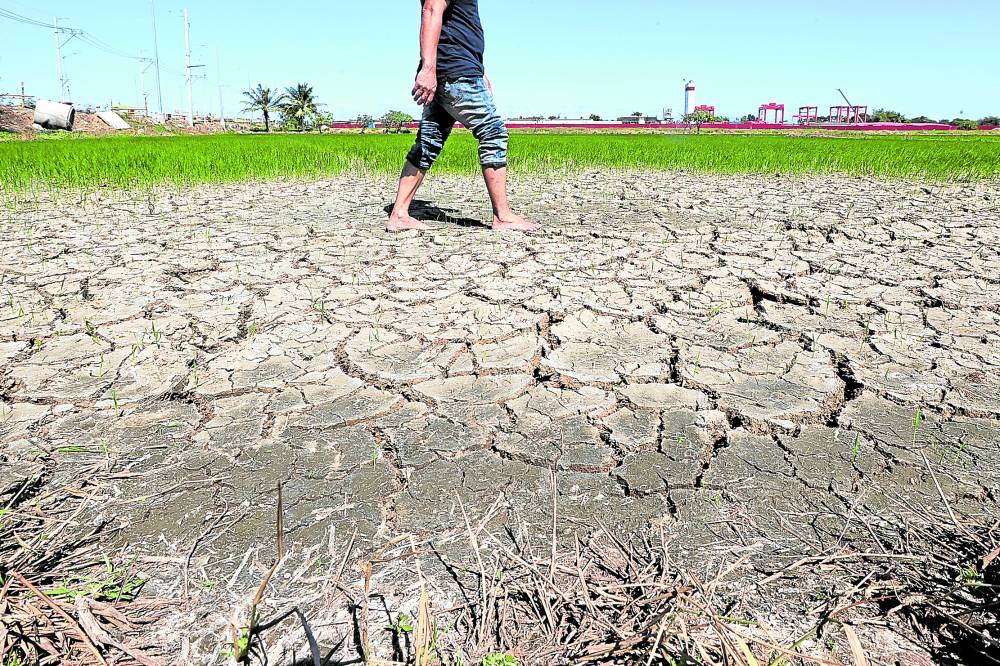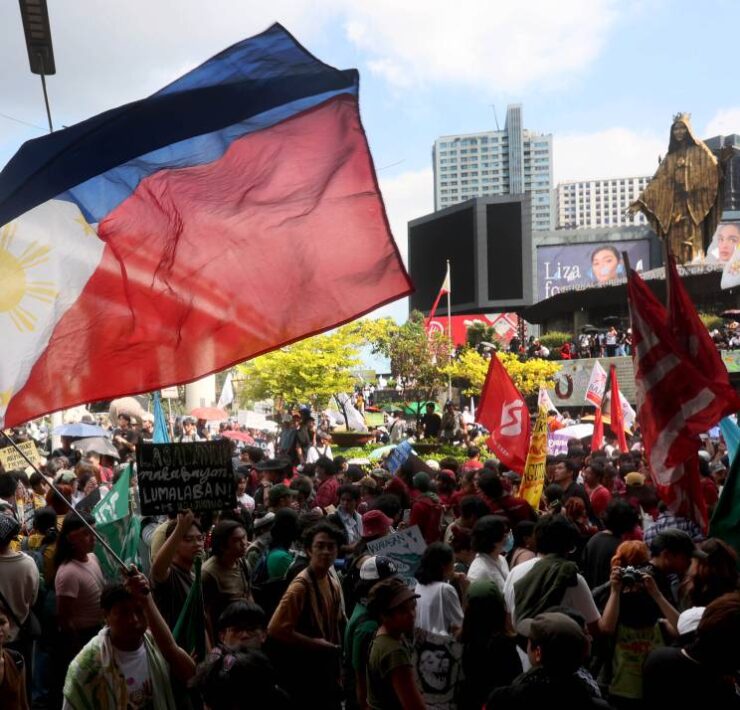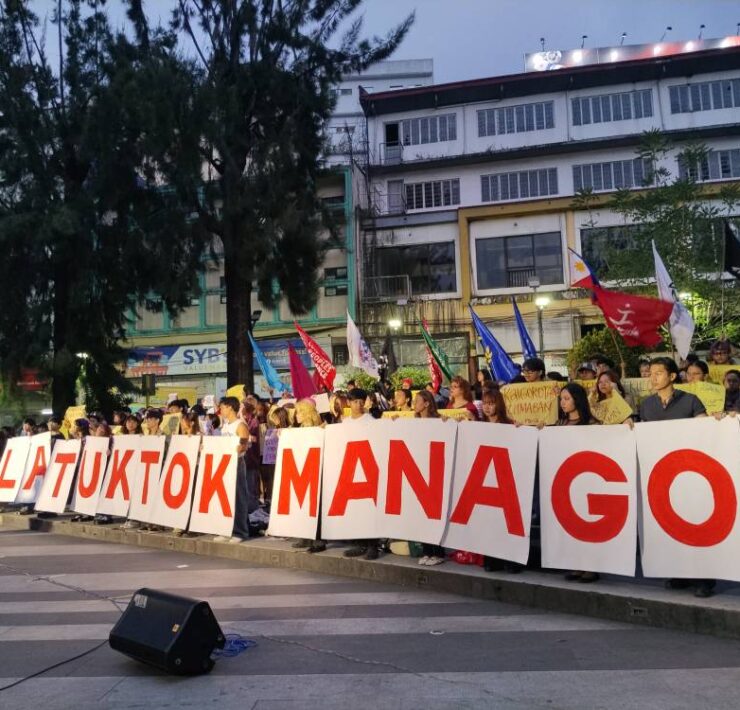El Niño damage to PH agri nears P 6B

The El Niño-induced drought continues to wreak havoc on crops and livestock across the country, raising the value of losses to more than a third of what the Department of Agriculture (DA) reported just a week earlier.
The DA said on Thursday that the extreme heat and lack of rain had resulted in P5.9 billion in agricultural damage as of April 30, equivalent to about 34.9 percent of the P4.3 billion recorded in its April 23 bulletin.
The agriculture department has been monitoring the effects of the El Niño weather phenomenon since its onset in July 2023 and started reporting the damage from the drought it has been causing in January this year.
It reported on Thursday that the drought had affected 113,585 farmers and fishers in 12 of the country’s 17 regions with the volume of production losses amounting to 255,467 metric tons in 104,402 hectares of agricultural land.
Rice farms worst hit
Rice accounted for 53.21 percent, or P3.14 billion, of total losses with 129,350 MT in 58,226 ha damaged.
Corn comprised 29.8 percent, or P1.76 billion of the overall damage. High-value crops accounted for P958.06 million, or 16.23 percent of the total.Losses to fisheries, and livestock and poultry amounted to P33.8 million and P7.9 million, respectively.
The DA said crops being raised in 75,873 ha affected by the long dry spell could still be recovered, but it did not give an estimate of their potential production volume.
The affected regions are Cordillera, Ilocos, Cagayan Valley, Central Luzon, Calabarzon, Mimaropa, Bicol, Western Visayas, Eastern Visayas, Zamboanga Peninsula, Davao and Soccsksargen.
Past losses
The losses from the effects of the current El Niño are not as severe as during the period from the late 1990s to the 2010s, according to DA records.
In terms of value lost, the agriculture sector suffered P17.44 billion worth of damage with 555,102 ha affected during the 2009 El Niño episode, the biggest since the late 1990s.
The DA said that 1997 was the worst of all the “strong and mature” El Niño years as it affected 677,441 ha, the largest area affected during that period. Losses in that year amounted to P3.07 billion.
Another severe episode was recorded in 2015 when El Niño-induced drought caused P15.2 billion in losses from 556,721 hectares.
In May 2019, El Niño damaged close to P8 billion worth of crops and fisheries, affecting 247,610 farmers and 227,889 ha across the country.
Then Agriculture Undersecretary Ariel Cayanan said that total production losses in rice alone reached P4.04 billion, affecting more than 100,000 farmers cultivating 140,000 ha.
According to a December 2019 report by the Asian Development Bank, the Philippine agricultural sector suffered a P4.1-billion loss during the 1992-1993 El Niño episode.
3 billion affected
The DA said it provided various forms of aid worth P2.18 billion to farmers and fishers to alleviate the effects of El Niño on their livelihoods.
These include the P1.065 billion in financial assistance to rice farmers in Cagayan Valley and Mimaropa, and P658.22 million in production support provided by its regional offices.
A punishing heat wave sweeping across the country is sending the heat index to dangerous levels, which the weather bureau has determined to be 42 degrees Celsius to 51 C.
Heat index, according to the Philippine Atmospheric, Geophysical and Astronomical Services Administration (Pagasa), is a measure of the combined effects of heat and humidity that reduces the body’s ability to cool itself, thereby increasing the sensation of a higher temperature. People exposed to such levels of heat could suffer from heat cramps or exhaustion if active outdoors.
Across the entire country, around 3 million people have been affected by the relentless heat, the Department of Social Welfare and Development said in its disaster report on May 1.
Pagasa on Thursday logged 23 areas with dangerous heat index levels.
At Ninoy Aquino International Airport in Pasay City, the heat index reached 41 C. But the northern cities of Dagupan and Aparri had a searing 48 C—the two hottest areas on Thursday.
‘Unbearable’
Officials have cautioned residents to limit outdoor activity, replenish fluids and protect themselves against heat stroke.
But for many from urban poor communities like Ilya and Antonia, who sell flowers outside La Loma Cemetery, there’s little choice but to remain outdoors, making an already brutal summer even more punishing.
They’ve been sweltering over the past weeks on a patch of pavement, struggling against the stifling conditions.
“The heat is unbearable, I get dizzy sometimes,” Ilya told the Inquirer.
Antonia nodded in agreement.
“My flowers wilt easily these days. We have to use a block of ice for the flowers to survive,” she said.
Hottest days
Buying ice is not an option as these would be an extra expense they can ill afford.
“Even when it’s nighttime, it’s like we’re being baked,” Ilya said.
Metro Manila recorded one of its hottest days on Saturday last week with the temperature rising to 38.8 C. Last Sunday, Iba, capital of Zambales province was seared by a heat index of 53 C, the highest in the country so far this year.
Over the next two days, the weather bureau forecasts 35 areas nationwide could experience dangerous heat index levels—from Sinait, Ilocos Sur, in northern Luzon to Iloilo City in the Visayas and Zamboanga City in Mindanao. —WITH REPORTS FROM RUSSEL LORETO AND INQUIRER RESEARCH




















